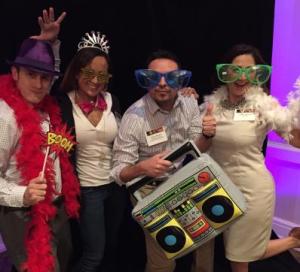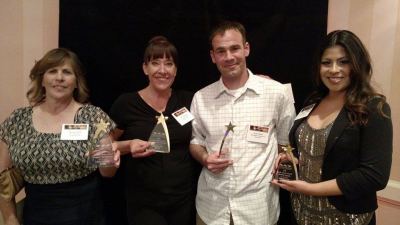What is Emotional Intelligence? And most importantly, why on Earth is it mentioned in this blog?
Read on my friends, and you’ll learn why.
First of all, here’s the Wikipedia definition of Emotional Intelligence.
Who has the time to read all that, right? Well, rather than read that, you can read this sentence that sums up why I wanted to talk about it in this short blog: Emotional Intelligence can help you land a job, keep that job, and excel at that job.
Is the glass HALF FULL or HALF EMPTY?
We all have different personalities and different ways of showing our emotions. The ability to recognize these emotions, and know how they affect the people around you, is a skill. This skill will help you to effectively manage your interactions and relationships with the people around you. For example, we all know someone, either at work or in our personal life, who is a caring and considerate person. They are what I call the TWO P’s: Personable and Professional at the same time. Maybe that person is you, maybe it’s someone you know. These folks keep their cool, and even if faced with an issue or a problem they cannot solve, they will tackle that problem with a feeling of hope and optimism. These same people don’t get angry in stressful situations, they look at a problem and calmly try to find a solution. They’re decision makers. They take criticism and they trust their intuition while looking at themselves honestly. People like this have a high degree of Emotional Intelligence. They know themselves. They are able to sense the emotional needs of others, and they apply this trait at work.
Personality Matters
When it comes to a job, these personality traits are just as important as what is on your resume. I always say that when it comes to a resume, all it does is make your phone ring. It’s YOU that lands the job. More and more companies and job-seekers are realizing that Emotional Intelligence, or Soft Skills, are just as important to an employee’s success as their technical ability, or their Hard Skills.
Whenever I open a candidate’s resume, I always see phrases like, “Team Player”, “Highly Motivated”, and “Works well with People”. They have become standard resume buzzwords repeated again and again. In interviews, when I ask candidates why we should hire them, those same words pop up again, only this time out loud: “I’m a team player”, “I’m a multi-tasker”, “I work well with people”. It’s like Re cruiting Deja-Vu.
cruiting Deja-Vu.
I wanted to write this blog as a rallying cry for all us to remember that words like Motivation, Empathy, Teamwork, Self-Regulation, and Optimism are more than words for a resume, they are real traits and characteristics of You. They make for a good interview, a good employee and a good person. Be ready to talk about them when you interview.
Who Would You Rather Work For or With?
Think of specific instances at work where you showed Self-Regulation, controlling your emotions and impulses when a task or co-worker made things stressful. Think of a time you were Motivated, where you thought about more than short-term results, but got excited about the long-term, embracing a challenge, and sharing that excitement with others. Those times when you identified with a co-worker or customer, really clicking with their wants, needs, and viewpoints, then you showed Empathy. You recognized the feelings of another, even when they weren’t obvious. Empathic people manage relationships well, they listen and relate to others—all of these are great traits to have in the workplace. And lastly, Optimism. This is my personal favorite. This is the person who is stranded on a deserted island in the middle of the Pacific, and says to themselves, “Well, at least I’ll get a great tan!” Optimistic people address the challenges of today, but focus on the possibilities of tomorrow. And this positive mindset in the workplace can be contagious. Ask yourself, who would you rather work with or for? The Optimist who works hard towards a positive plan of what can be? Or the pessimistic co-worker or manager who always wonders what good it will do? Optimists see setbacks as opportunities and things to make the best of. They adapt to the changing nature of a job or project, while pessimists drag down teams, and pour cold water on new ideas.
What Works for Our Company, Works for You
Optimism, Empathy, Motivation, Teamwork, Self-regulation; these traits give a company like Lewis a competitive advantage. And they can do the same for you. Your competence with MS Word, your apartment maintenance skills, your sales numbers, the past projects you’ve managed, the last Excel spreadsheet you designed—Yes, these Hard Skills are all important to success at a job. But remember, at an interview and especially at a job, it is your Emotional Intelligence, your Soft Skills that will be a key factor in your long-term success, your personal development, and your career. Now, go drink that cup of coffee, because it’s waiting for you, and it’s half full.
